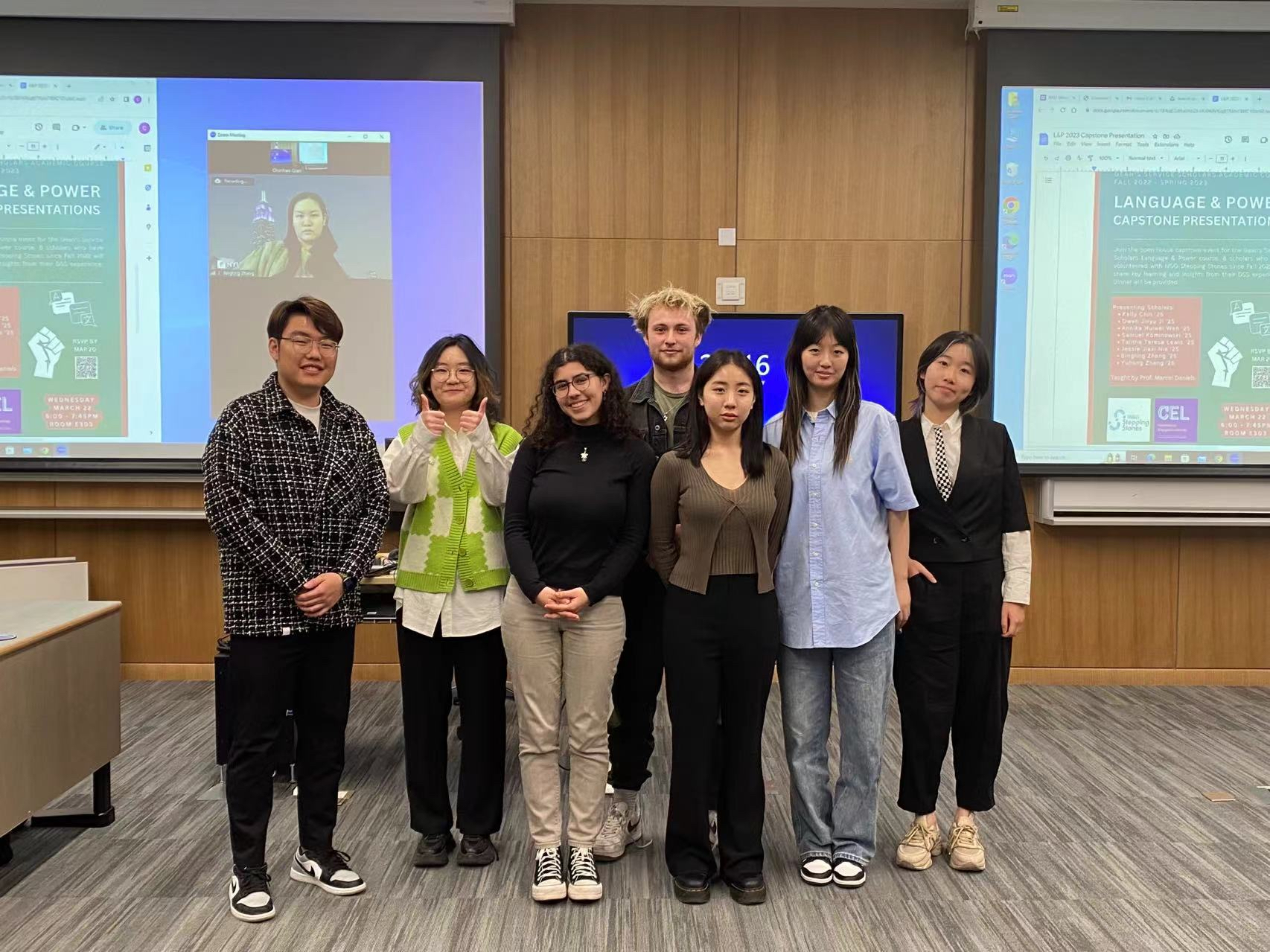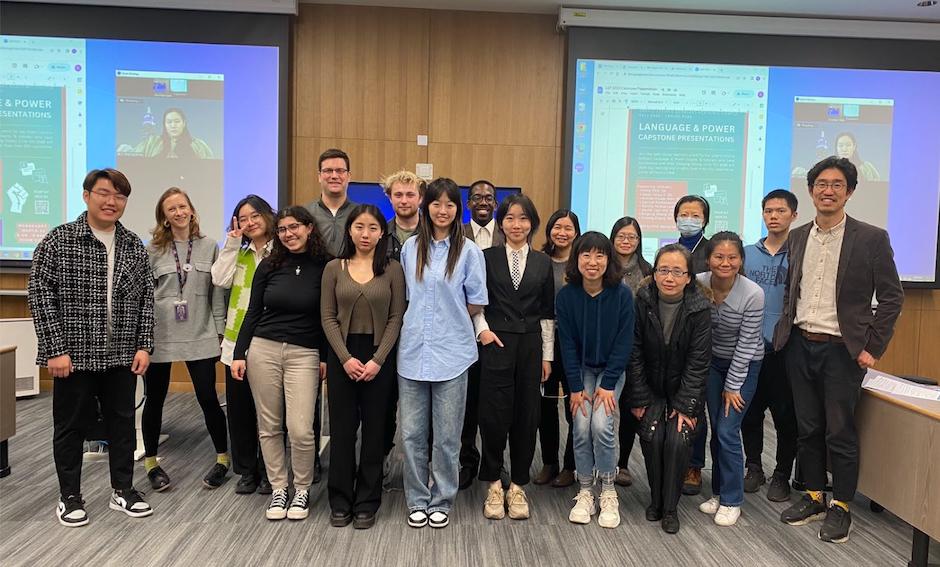“What is English?” That was the impromptu question posed by Marcel Daniels to his eight DSS Language and Power students at the close of their capstone presentations on Wednesday night. Their answers hinted at the diversity of perspectives the students brought to the class. For Bingting Zhang ’23, English “provides an opportunity to view things differently.” Others replied that it’s a “tool for communication” or “opportunity for self-expression.” One student answered that English is simply “the way my brain is wired.”
The Language and Power class is a two-semester Dean’s Service Scholars service learning elective that has been offered for the past four years in collaboration with the Office for Community Engaged Learning. In class, they read academic texts and discuss concepts like linguistic imperialism, native speakerism, code switching, and translanguaging. Weekly written reflections and regular dialogues with teaching partners are required. Outside of class, students volunteer as English teachers with Stepping Stones, a local organization providing children of migrant workers with English education opportunities.

DSS Language and Power students pose with their capstone presentation audience.
This was the first time since the pandemic began that the students were able to give their capstone presentations in person. Daniels, who taught the students, said that the presentations were designed to allow the students to share their reflections and question each other about their personal understanding of language and power. Particularly for students at NYU Shanghai, a Sino-American educational institution in China with students from around the world using English as the language of instruction, there is plenty to unpack and explore, he said. “They are negotiating their identities as instructors of language. They are [also] getting to reflect on their experiences as learners.”
The students introduced research topics of their own choosing as well as reflected on their experiences being volunteer teachers. “I never associated language with power before taking this class,” said Annika Huiwei Wen ’25. Throughout her presentation, she shared how her ideas on language had developed and showed examples of her regular teaching reflections, ranging from excitement to disappointment and loss of motivation, and finally to appreciating the value of the connection she was making with her students.
Other students introduced the primary and secondary research they conducted and how it related to their own teaching experiences. Jennifer Yuhong Zhang ’26 spoke on the complexities of language learning, the popular assumption of the “superiority of English,” and the conflicting feelings she felt as a teacher promoting English learning. In her presentation, she came to a conclusion that rather than feeling like an “accomplice” of linguistic imperialism, as a teacher she could give agency to her students and allow them to identify their own goals in language learning.
Talitha Teresa Lewis ’25 spoke on translanguaging and her experiments with creating an immersive language environment. While she started out her teaching experience trying to use only English in the classroom, she said she soon realized that wasn’t always a good fit for her students. She said she learned to value the use of Chinese in the classroom as a way to gauge comprehension.
Owen Jinyu Ji ’25 spoke on the attitudes of Chinese parents towards English teachers. He said his mother, like many Chinese parents, preferred native English speaking teachers because she hoped they could spark her child’s interest in language learning. His research explored the pros and cons of native versus non-native speaking teachers and he touched on the discrimination faced by non-native speaking teachers in China’s English language education market.
Samuel Benson Kominowski ’25 tackled the complexities of slang and whether or not educators should include informal language in their curriculum. Jessie Jiaxi Nie ’25 discussed Chinese parent and student perspectives on native versus non-native English teachers. Bingting Zhang ’23 spoke on the role of language in the relationship between patients and their health care providers.
Several representatives from Stepping Stones attended the event. Claire Ding, who manages curriculum and training at the organization, said hearing the students’ perspectives provided valuable feedback. “I heard about frustrations and those touching moments and how difficult classroom management is,” she said. “The students related their teaching experience to their own language experience and communication in a wider sense. It was actually quite surprising for me.” She said their experiences could be helpful to her as she develops training for volunteers.
Daniels said the DSS Language and Power class will be offered again in the fall. Students who apply to be accepted into the class must be prepared to commit to a regular volunteer teaching position and write regular reflections on their experience.


